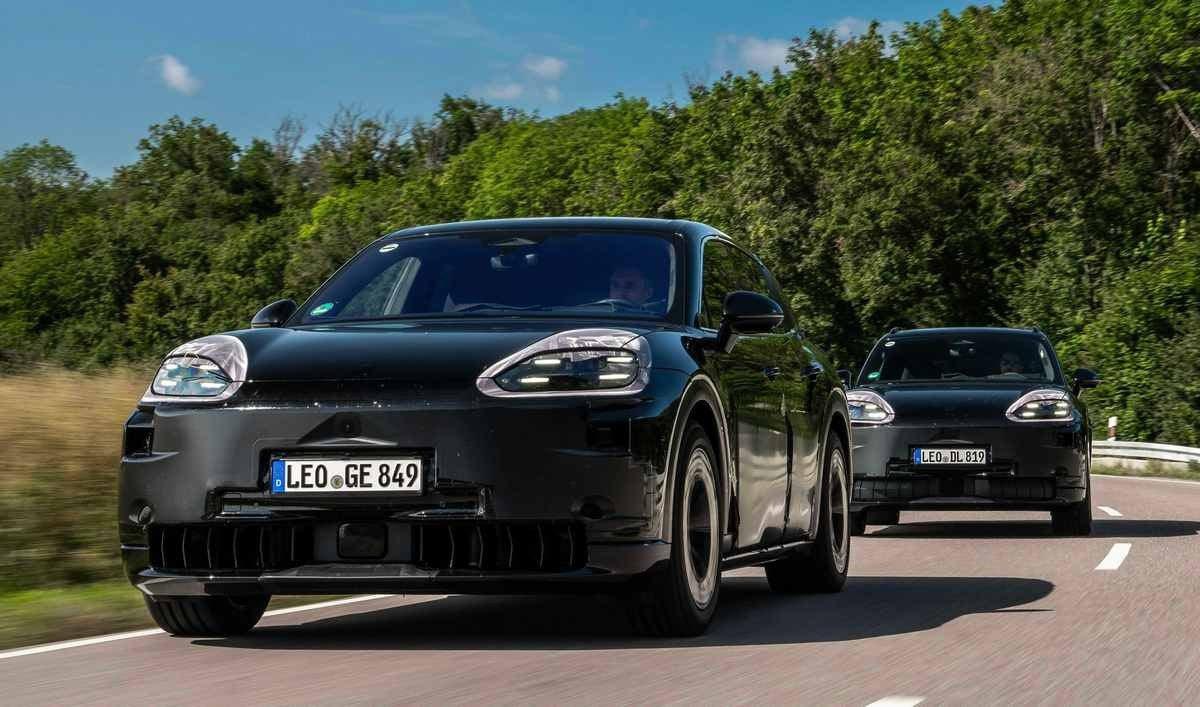Von der Ablehnung zur Neubewertung
Im Jahr 2023 machte Porsche Schlagzeilen, als einer seiner Entwicklungsfahrer „falsche“ Gangwechsel bei Elektrofahrzeugen als sinnlos abtat. Die Begründung war klar: Bei Verbrennern unterbricht jeder Gangwechsel die Leistungsabgabe, bei Elektrofahrzeugen ist diese Unterbrechung unnötig. Rein ingenieurtechnisch gesehen war das Überspringen von Gangwechseln durchaus sinnvoll.
Doch mit der Entwicklung des Elektrofahrzeugmarktes steigen auch die Erwartungen. Nur weil etwas keinen praktischen Nutzen hat, heißt das nicht, dass es das Fahrerlebnis nicht verbessern kann. Marken wie Hyundai haben mit dem Ioniq 5 N bereits gezeigt, dass simulierte Gänge für mehr Spannung sorgen können, auch wenn sie nicht unbedingt notwendig sind.

Eine neue Richtung für den Cayenne EV
Bei einer kürzlichen Probefahrt mit dem Cayenne EV verriet Sascha Niesen , Porsches Prototypen-Fuhrparkleiter, dass das Unternehmen aktiv mit der Idee simulierter Gänge experimentiert. Porsche ist nicht nur offen dafür, sondern hat bereits einen Prototyp mit simuliertem Achtganggetriebe gebaut , komplett mit authentischen V8-Motorgeräuschen, die von einem Porsche Cayenne V8 aufgenommen wurden.
Laut Niesen:
„Wir haben sowohl die Geräusche im Innenraum als auch die Geräusche aus dem Auspuff von außen aufgezeichnet.“
Da Elektrofahrzeuge und Benzinmotoren mit sehr unterschiedlichen Drehzahlen arbeiten, war eine Feinabstimmung erforderlich. Das Team musste den Klang an den deutlich größeren Drehzahlbereich des Elektrofahrzeugs anpassen , um ein natürlicheres Fahrerlebnis zu erzielen.
Virtuelle Gangwechsel werden Realität
Auf die Frage, ob virtuelle Gangwechsel nur Theorie seien, bestätigte Niesen das Gegenteil. Porsche hat ein Konzeptfahrzeug mit Schaltwippen entwickelt, das ein Fahrgefühl vermittelt, das sich kaum von einem herkömmlichen Getriebe unterscheidet.
„Ich bin im März ein Konzeptfahrzeug gefahren. Ich wollte es hassen, weil es künstlich und unecht und so ist … Aber die Ingenieure, die daran arbeiteten, hatten zuvor Doppelkupplungs- und Drehmomentwandler-Automatikgetriebe entwickelt, und sie gaben ihm das Gefühl, ein richtiges Getriebe zu haben. Ich konnte keinen Unterschied feststellen.“
Dies war keine Spielerei von Software-Enthusiasten – die Entwicklung erfolgte durch Porsche-Veteranen, die sich mit der Getriebedynamik bestens auskennen.

Den Fahrern die Wahl lassen
Porsche räumt zwar ein, dass nicht jeder Käufer eines Elektrofahrzeugs simulierte Gangwechsel wünscht , sieht aber dennoch einen Mehrwert darin, diese Option anzubieten. Das System kann ein- oder ausgeschaltet werden, sodass der Fahrer zwischen einem nahtlosen Elektrofahrzeug-Erlebnis und einer spannenderen, leistungsorientierteren Fahrt wählen kann.
Wie Niesen es ausdrückte:
„Aus technischer Sicht macht es keinen Sinn, einen Gangwechsel einzuführen. Andererseits gibt es stufenlose Getriebe, bei denen Gangwechsel eingeführt wurden, weil sie sich natürlicher anfühlten.“
Letztendlich überwiegt in der Welt der Autos der Wunsch oft die Notwendigkeit . Porsche scheint bereit zu sein, diese Philosophie zu übernehmen und Technologie mit Emotionen zu verbinden, um Elektrofahrzeugen ein Fahrverhalten zu verleihen, das sich weniger digital und mehr mechanisch anfühlt.
Empfohlene Lektüre: Rivian strebt freihändiges Punkt-zu-Punkt-Fahren bis 2026 an








Aktie:
Rivian strebt freihändiges Fahren von Punkt zu Punkt bis 2026 an
Hyundai und Kia stürmen in den USA mit Elektrofahrzeugen und erzielen Rekordverkäufe